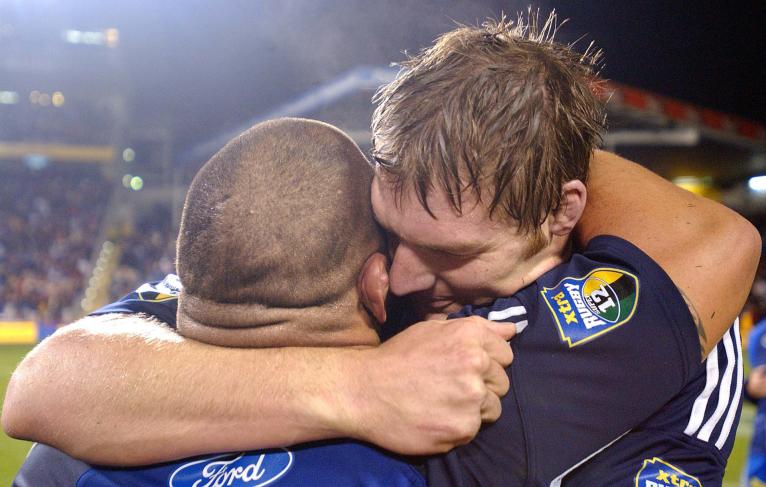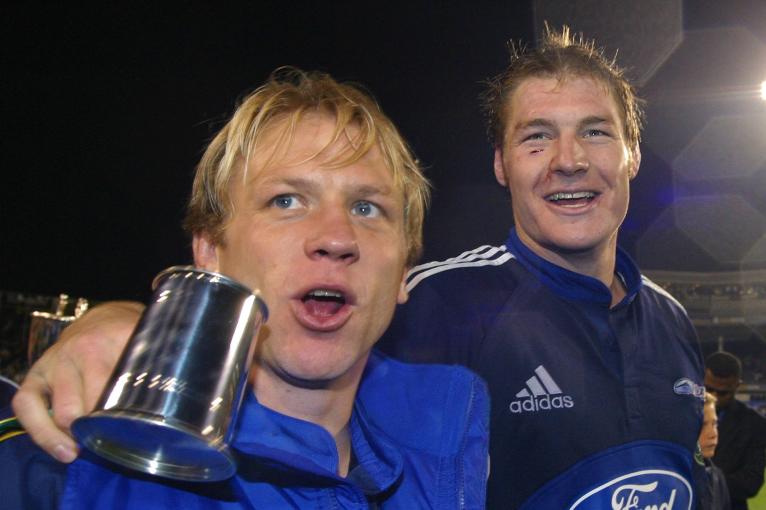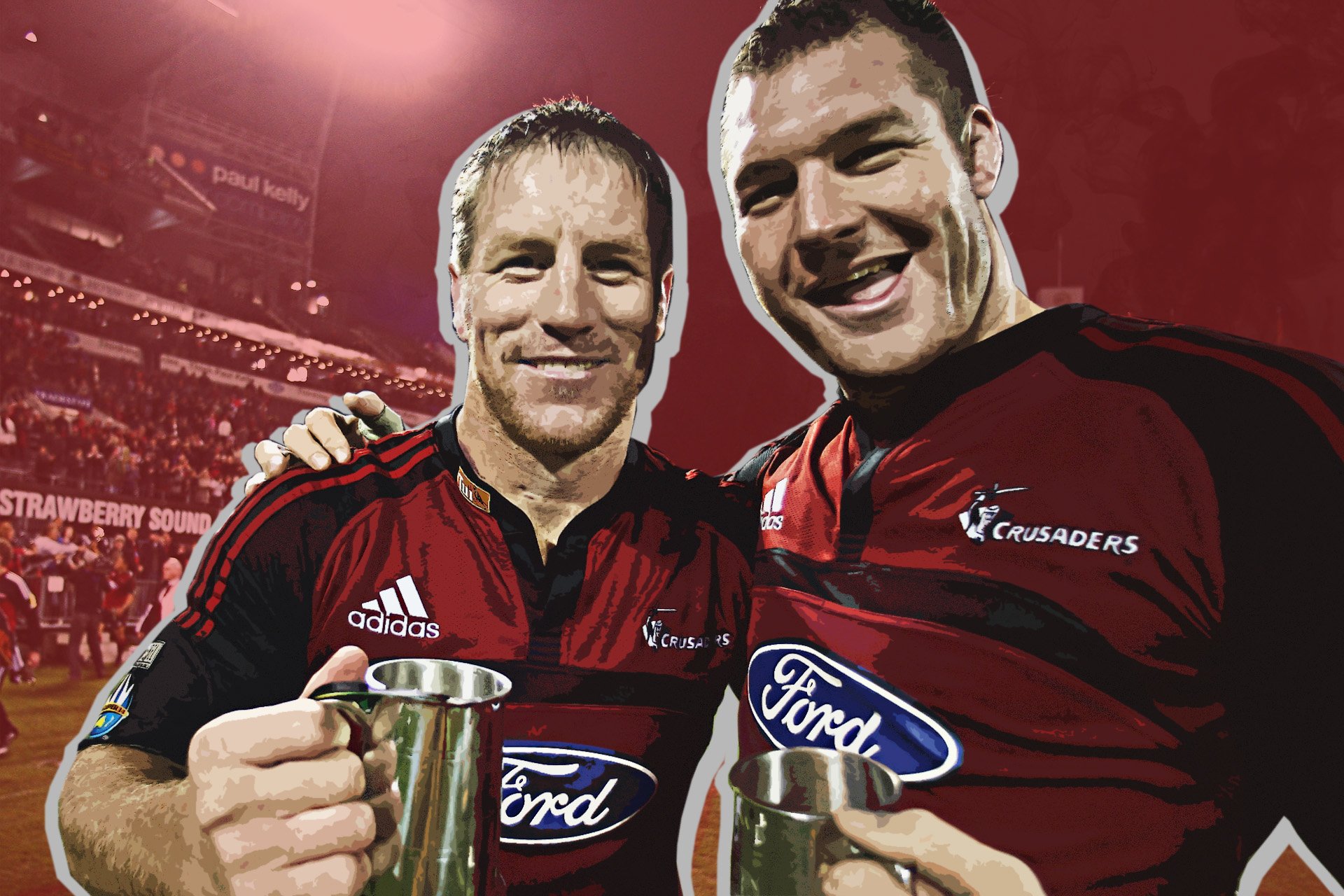Now that we’re approaching the business end of the Super Rugby finals, the question we ask ourselves is how do players and coaches prepare their weekly plan and deal with expectations. Does the way teams prepare change when they know it’s now do-or-die as they risk ending their season prematurely?
Preparation starts with the coaches. I’ve had some great coaches in my career, all with different approaches to playoff rugby. Some coaches just try to pull back on the whole week and don’t try to overcomplicate things. They don’t try and look for an emotional connection with something, they just give you a bit of space to get excited, to absorb the situation and keep you grounded by simplifying the week.
Conversely, I’ve had other coaches that get a bit more excited. They try and put more in because they feel that this is a real opportunity and they can’t let it slip so they want to turn every stone over and leave nothing uncovered.
Where do I think personally things should go? I think it’s a balancing act between keeping the regular week-to-week grind – guys have got systems and preparation down pat – but then it’s also about letting the player find something else extra within himself, let the player get excited by the prospect of the match. At the end of the day, the coaches have got to trust themselves and trust that they’ve done enough work and that their boys will go in and repeat what they’ve done all season in getting them to where they are.
I think if we look at how players prepare for playoff rugby, it seems like there are several ways of handling things.
Those that have been there and done it before just keep to a regular pattern for the week. They keep doing the same things, but probably freshen up a little bit by not doing the chores around the house. They wouldn’t choose to do the lawns, they wouldn’t choose to go to the supermarket, they’d either get the wife or partner to do it or in this modern world order Uber Eats and lie on the couch. I think naturally they also probably read and watch a bit more into the hype surrounding the event, because it builds into what they do mentally that week.
I don’t think it’s a great idea to grab emotion, especially in a quarter-final or semi-final. I think it’s important to simply keep doing what you’re doing. Grand finals are very different, you can just chuck everything as long as you keep your head.
When it comes to playing a knockout game in Super Rugby, it’s one of those things where I ask, why are you trying to change something that has worked for you all season, when you don’t really need to? But in saying that, when it’s win or go home, you’ve got to bring something different.
That isn’t necessarily based around flair, more on a putting together a constructive plan, especially in Super Rugby where it’s quite an open game. Super Rugby finals ultimately come down to decision making. Do you play with ball in hand or do you kick the ball and gain possession. If you’re a Crusader man you’ll probably kick for possession and you’ll grind because that’s what you’ve done and you know it’s what you do best.

When you look at someone relatively new to playoff rugby like Damian McKenzie, it was interesting to see how he handled himself in the No. 10 jersey. I wanted to see whether he would tighten up or if he would still play with the flair that he’s always played with, and how his judgement would change given the difference in circumstance.
If you’ve got minimal playoff experience, you soon realise that once you’re on the field there’s only so much you can do. Each player has got to do his thing and that is where experience is king.
The experienced player simply stays more grounded. They don’t look at it like it’s the first firework or the last hurrah, they approach the game as an opportunity to prove their worth and show the work that they’ve done. They find extra petrol in the tank, you find an extra mental capacity to sustain pressure. They find a little bit more vision in their eyes when looking to pass the ball or seeking out lineout options.
You look at the game quite differently in finals rugby and that’s what experience gives you. I think the difference between a good player and a great player is how they perform in finals footy.
All the accolades go to the team and players that win the championship. We had a saying once, you only really remember the teams that you were successful in, and that’s because you get into that cauldron of finals rugby where you remember everything.
I still remember a lot of my games, in particular the 2003 finals with the Blues. The whole week was pretty much a blur, but once you were out there, your brain clicked in and you got excited.
That season with the Blues we lost just once, away to the Highlanders, which led to big expectations that we had to live up to.

Those expectations can play another big role in terms of your mindset, preparation and performance. Back then, you had already played that team and beaten them, so you’d go into the match thinking you know how to beat the opposition and that you should beat them. You’ve actually got to alleviate that and start fresh, but it definitely gives you mental confidence in knowing that you can beat any team in front of you.
Dealing with the expectations of winning comes down to the mental attitude of the individual, which strengthens the collective bind. You’ll find that in most cases, athletes already go into each match expecting to win and have their own internal pressures.
Yes, success does put huge expectations on a player heading into finals rugby, and those that thrive and see it as an added bonus are the players that perform well. Those that look at expectation as a burden and start to question whether they can perform or whether they are good enough is when expectation can cut players down.
At the end of the day, it’s just another game and the opposition is in the same position. You’ve got to enjoy the simple things. Rugby and sport is a part of your life, but it’s not the be all and end all of your life, so if you can look at it like that you’ll be in better stead.
In case you missed it:







































































